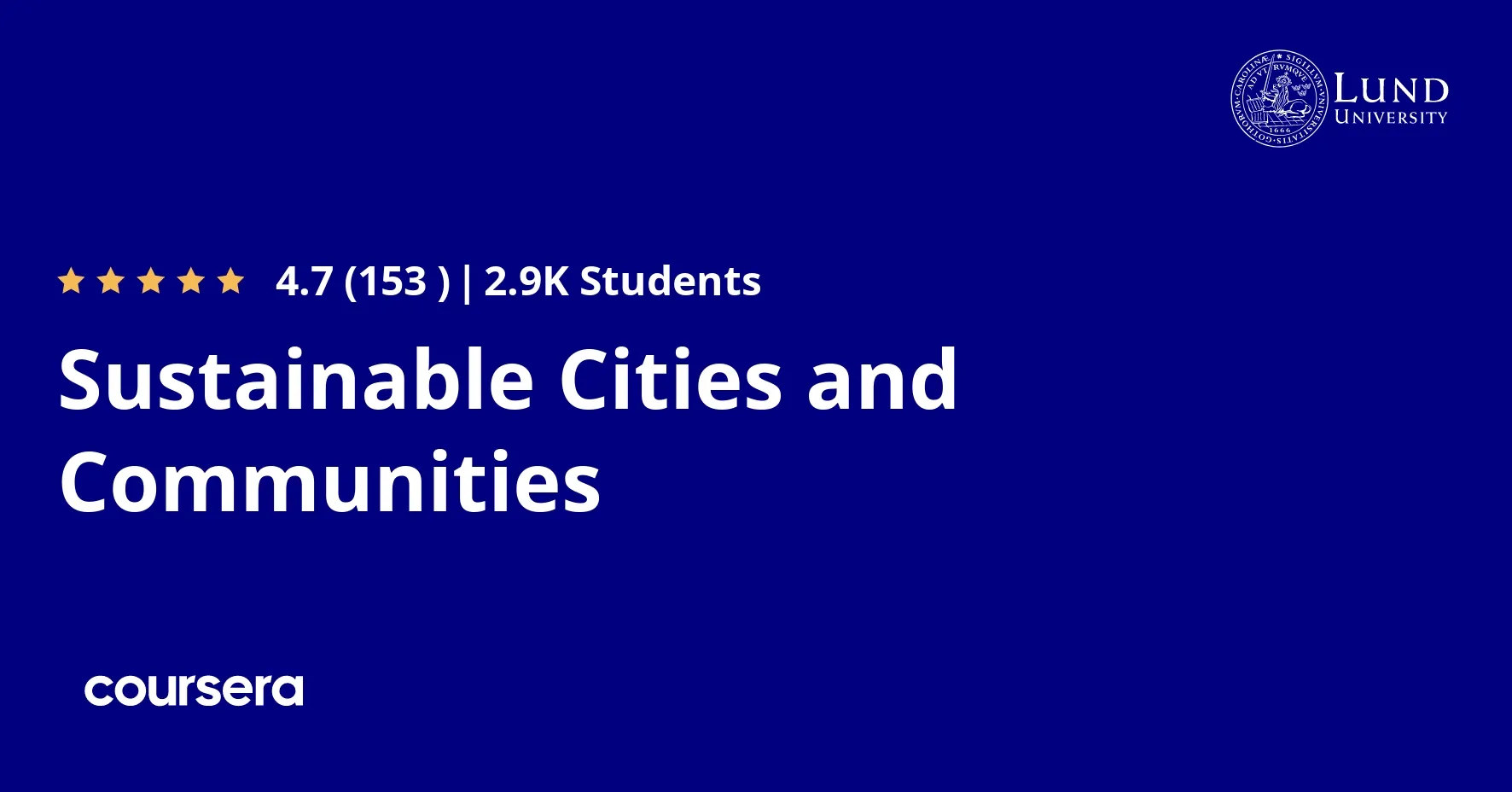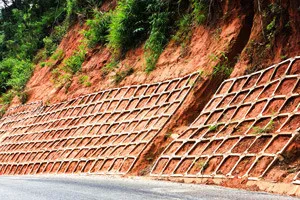
Sustainable Cities and Communities 
Gain the necessary knowledge and skills to create sustainable cities and communities worldwide with this course on urban transformations. Learn how to navigate the complexities of urban life and create a more sustainable future. ▼
ADVERTISEMENT
Course Feature
![]() Cost:
Cost:
Free Trial
![]() Provider:
Provider:
Coursera
![]() Certificate:
Certificate:
No Information
![]() Language:
Language:
English
Course Overview
❗The content presented here is sourced directly from Coursera platform. For comprehensive course details, including enrollment information, simply click on the 'Go to class' link on our website.
Updated in [March 06th, 2023]
This course provides an overview of sustainable cities and communities. Students will gain an understanding of the relationship between urbanisation, decarbonisation, and sustainability. They will develop critical thinking skills to assess the opportunities and challenges for greening the economy through sustainable cities and communities. Additionally, students will learn to use systems thinking to evaluate sustainable cities and communities. By the end of the course, students will have a greater comprehension of sustainable cities and communities and the ability to assess them.
[Applications]
The application of this course can be seen in the development of sustainable cities and communities. It can help to inform decisions on urban planning, decarbonization, and sustainability. It can also help to develop critical thinking skills to assess the opportunities and challenges of greening the economy. Additionally, it can help to develop systems thinking skills to assess the sustainability of cities and communities.
[Career Paths]
1. Urban Planner: Urban planners are responsible for designing and developing plans for the physical layout of cities and towns. They must consider the needs of the community, the environment, and the economy when creating plans. Urban planners must also be aware of the latest trends in sustainable development, such as green infrastructure, renewable energy, and smart city technology.
2. Sustainability Consultant: Sustainability consultants help organizations and governments develop strategies to reduce their environmental impact. They must be knowledgeable about the latest trends in sustainability, such as green building, renewable energy, and sustainable transportation. They must also be able to assess the environmental impact of different projects and recommend solutions.
3. Sustainable Development Manager: Sustainable development managers are responsible for developing and implementing sustainability initiatives within organizations. They must be knowledgeable about the latest trends in sustainability, such as green building, renewable energy, and sustainable transportation. They must also be able to assess the environmental impact of different projects and recommend solutions.
4. Sustainable City Designer: Sustainable city designers are responsible for designing and developing plans for the physical layout of cities and towns. They must consider the needs of the community, the environment, and the economy when creating plans. Sustainable city designers must also be aware of the latest trends in sustainable development, such as green infrastructure, renewable energy, and smart city technology.
[Education Paths]
1. Bachelor of Science in Urban Planning: This degree program focuses on the development of cities and communities, and how to create sustainable and equitable urban environments. It covers topics such as urban design, land use planning, transportation, housing, and economic development. Students learn how to create plans that balance the needs of the environment, the economy, and the community. This degree is becoming increasingly popular as cities and communities become more aware of the need for sustainable development.
2. Master of Science in Sustainable Development: This degree program focuses on the development of sustainable cities and communities. It covers topics such as urban planning, environmental management, energy efficiency, and green building. Students learn how to create plans that balance the needs of the environment, the economy, and the community. This degree is becoming increasingly popular as cities and communities become more aware of the need for sustainable development.
3. Master of Science in Environmental Science: This degree program focuses on the study of the environment and how to protect it. It covers topics such as ecology, conservation, and environmental policy. Students learn how to create plans that balance the needs of the environment, the economy, and the community. This degree is becoming increasingly popular as cities and communities become more aware of the need for sustainable development.
4. Doctor of Philosophy in Sustainable Cities and Communities: This degree program focuses on the development of sustainable cities and communities. It covers topics such as urban planning, environmental management, energy efficiency, and green building. Students learn how to create plans that balance the needs of the environment, the economy, and the community. This degree is becoming increasingly popular as cities and communities become more aware of the need for sustainable development.
Course Syllabus
Greening the Economy: Sustainable Cities
Urban Nature: Connecting Cities, Sustainability and Innovation
Cities and Consumption: Urban Sustainability and the Sharing Economy
Course Provider

Provider Coursera's Stats at AZClass
Gain the knowledge and skills necessary to create sustainable cities and communities around the world with this course on urban transformation. Learners can use this course to understand the relationship between urbanization, decarbonization and sustainability. They can better understand the opportunities and challenges of greening the economy through sustainable cities and communities. In addition, learners can develop their critical thinking skills to evaluate sustainable cities and communities using systems thinking. The course also provides learners with the knowledge to create and implement strategies for sustainable cities and communities. Finally, learners gain an understanding of the importance of sustainable cities and communities and how to create a more sustainable future.
Discussion and Reviews
0.0 (Based on 0 reviews)
Explore Similar Online Courses

Javascript ES6! A Complete Reference Guide to Javascript ES6

Beginner& Sewing Course - Project #6 - The Shirt Dress

Python for Informatics: Exploring Information

Social Network Analysis

Introduction to Systematic Review and Meta-Analysis

The Analytics Edge

DCO042 - Python For Informatics

Causal Diagrams: Draw Your Assumptions Before Your Conclusions

Whole genome sequencing of bacterial genomes - tools and applications

Advanced Erosion Control Measures

Environmental Studies


Start your review of Sustainable Cities and Communities